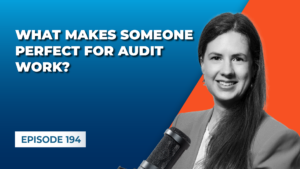Show Notes
Lukas Swart from Swart & Associates talks to James Kennedy, CEO of ProcurementExpress.com, about his experience as a business rescue practitioner. If you’re unsure about what this profession entails – stick around. He gives some insights into the companies they work with and their communication with all stakeholders, from banks and creditors to tax officials and investors. Lukas also talks about his other passion – providing a haven for big cats at Ubuntu Wildlife Sanctuary. Tune in for a fascinating conversation!
Lukas was born and raised in South Africa. He then did a 4 year financial degree there in the mid 80s and after that, he set up an accounting practice (that is still there to this day!) In 2002, Lukas and his family decided to move to Ireland and they lived there until 2017. Most of his time in Ireland was spent still being in practice in the finance industry, with a few national and international companies.
What Are The Advantages Of Being In Practice Vs. In Industry As An Accountant?
Personally, Lukas found auditing, for example, to be monotonous. Thankfully, there are people who enjoy that kind of thing though. His personal opinion is that you have to go through both sides of it. You have to practise for a certain amount of time to get a base knowledge of what’s happening before going into the industry aspect of it and in his case, he decided to do 4 years of practise before working in industry. Once he started working in industry, he noticed that it was easier because there’s a better chance to help a company that is in trouble, rather than move into a senior role.
He notes that after moving from South Africa to Ireland, he realised there were big differences between each of the systems and that was definitely a culture shock! He found that the system operated better in Ireland and in South Africa, the system was more broad.
An example is that an Irish auditor coming into your company to audit will come in and do the VAT, the PAYE and they will do the whole operation’s tax. In South Africa, they are more specialised, so there would be VAT inspectors for example and so on. As far as company law goes, things weren’t that different, but from a tax point of view, things were completely different.
All About Business Rescues in South Africa
The piece of law known as “Business Rescue” was introduced into South Africa in 2011. Before companies go into liquidation, they can apply to go into business rescue. In order to go into business rescue, the company needs to be both financially distressed and there must be a good chance that the business can be rescued. The business can go into business rescue via the directors filing through the court or the court placing them into business rescue. There is a team of 10 guys who work on the business rescue and it consists of lawyers, accountants and so on. The business rescue practitioner is then appointed and there are a few rules. For example, the lawyer or accountant cannot also be the business rescue practitioner. The court appoints the people working on it, so the team actually works for the court and not the business, which is interesting. The court appoints them to see if they can come up with a better outcome for the business and the shareholders of the company.
Once the business rescue practitioner is appointed, they have a certain number of days in which they must have creditor’s meetings (where they invite all of the creditors and relevant parties, so the union and employees as well) and they tell them a summary of what they think went wrong in the business and why they think you can save the business. They have a time limit then for producing a detailed business rescue plan, which includes what went wrong, how they will fix it and a comparison. They then also have approximately a year to actually complete the business rescue.
How Do Owners Of Business Rescue Businesses Typically React?
Business rescue practitioners are obliged to report any allegations. If someone has owned their business for 10 or 20 years, they find it hard to give over any power. Lawyers used to run the business rescue operation and with all due respect, lawyers don’t know how to run businesses, they know how to close them. Therefore, there was definitely a bad connotation with going into a business rescue.
Are There Investors Who Are Looking For Business Rescues To Invest In?
Business rescue gives people a good tool to restructure businesses. In a lot of cases, if you have a business that has quite a few good assets and it is doing well, but you are sat with a big tax bill that you need to pay; if you have an opportunity to trim that business down, you can make a good business out of it.
Ubuntu Wildlife Sanctuary
Lukas always thought he would like to get involved with animal rescues and welfare. One day, he met up with a friend from school who had a vision of making a sanctuary that sets the standard for animals being held in captivity and Lukas is incredibly passionate about the sanctuary they have created.
Surprisingly, you can’t just take a lion who has been in the circus, for example, and then set him free in the wild. There has to be some form of captivity. Ubuntu Wildlife Sanctuary rescues animals from all around the world and they have over 1650 hectares they are using to bring in more animals. They work on a system where they have volunteers who come to the sanctuary using Salesforce for VTO. Each salesforce employee gets 1 week of VTO time that isn’t a part of their normal leave, as long as they do charity work.
If you want to take a look at or donate to Ubuntu Wildlife Sanctuary, click on the link below!




